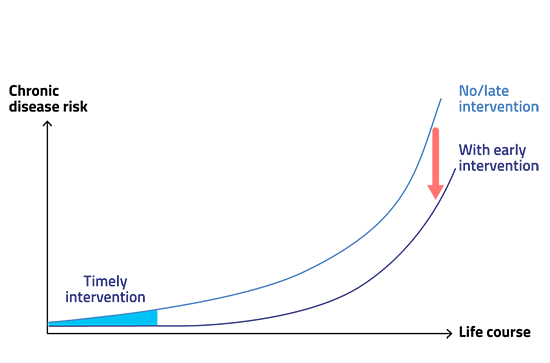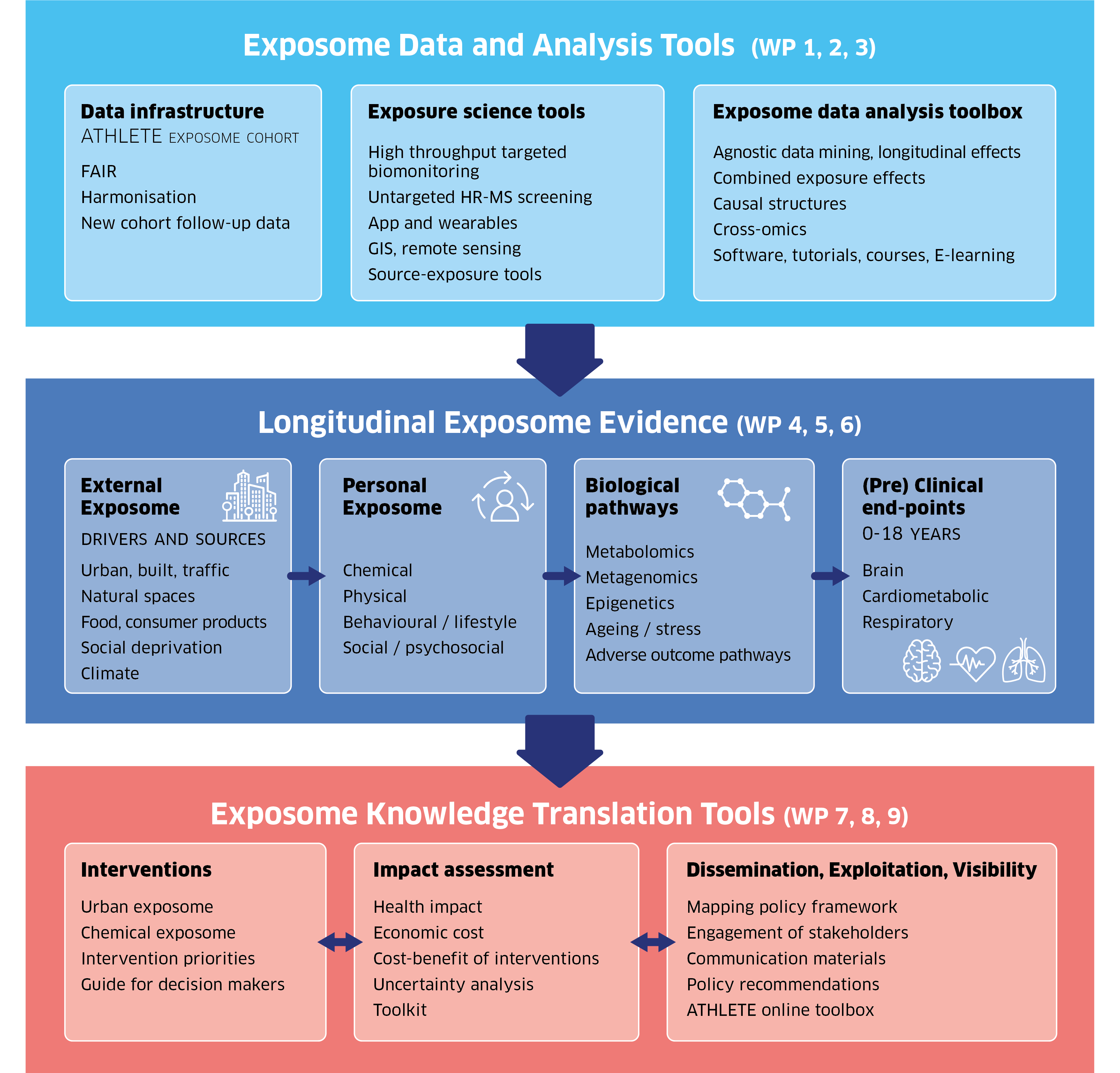About the project
What
ATHLETE (Advancing Tools for Human Early Lifecourse Exposome Research and Translation) is a European-funded project that aims to better understand and prevent health effects of numerous environmental hazards and their mixtures, starting from the earliest stages of life.
The project aims to develop a human exposome toolbox that can be used to evaluate the effects of a large number of environmental exposures in individuals, as well as in communities, in order to design policies and interventions to prevent or reduce their health impact.
Why
The early stages in life are a key period of our development during which we are highly susceptible to environmental damage, with lifetime health consequences. This makes it an important starting point for addressing the exposome and an ideal time-window for implementing cost-effective preventive actions and policies aimed at reducing adverse environmental exposures.
The human exposome – which studies our exposure to many environmental factors throughout our lifetime – encompasses this complexity of the environment by studying exposures to many environmental factors throughout life, starting from conception and pregnancy. The human exposome promotes a fundamental shift in studying environmental impacts on health, moving research from the traditional biomedical ‘one exposure, one disease’ to a more comprehensive and holistic approach.

Keith M.Godfrey, Peter D.Gluckman, Mark A.Hanson. Developmental origins of metabolic disease: life course and intergenerational perspectives. Trends in Endocrinology & Metabolism, April 2010; 21(4). DOI: 10.1016/j.tem.2009.12.008
How
Over the course of this five-year project, we will:
- Set up a prospective Europe-wide exposome cohort covering the first two decades of the life course, building on 18 existing cohorts across Europe.
- Measure numerous environmental exposures (urban, chemical, lifestyle and social risk factors) during pregnancy, childhood, and adolescence.
- Link this “early-life exposome” with children’s biological responses and cardiometabolic, respiratory, and mental health.
- Estimate the societal impact of the exposome by calculating economic costs and impacts for children’s health, in order to guide evidence-based policies and administrative decisions.
- Implement interventions for reducing exposures related to the urban and chemical exposome.
- Translate acquired knowledge for policymakers and citizens.
- Make exposome data, tools and results available to researchers and policy makers in an online ATHLETE toolbox for use during and after the project, including an openly accessible exposome data infrastructure.
- Work together with nine projects as part of the European Human Exposome Network to implement the world’s largest network studying the impact of environmental exposure on human health.
Expected Impact
ATHLETE is a European-funded project that aims to study the effects of numerous environmental hazards on human health, from pregnancy to adolescence.
Our goal is to:
Better understand the complex actions of multiple environmental factors leading to disease, going beyond the traditional ‘one exposure – one disease’ model.
Provide much-needed information on integrated approaches for more effective prevention of environmental hazards, especially during the most vulnerable early-life stages.
Create state-of-the-art and openly accessible tools to measure, analyse, and interpret exposome data and translate new knowledge into policy and practice.
Work packages
ATHLETE aims to develop a prospective exposome cohort and an advanced, next-generation, toolbox on the human exposome. The toolbox can be used to systematically quantify the effects of a wide range of community-level and individual-level environmental risk factors on mental, cardiometabolic, and respiratory health outcomes and associated biological pathways, during the first two decades of life. We will implement co-designed community-level interventions co to reduce personal exposures and translate the resulting evidence into policy recommendations and prevention strategies.
To achieve its objectives, the ATHLETE project is structured into three key areas that
contain nine Work Packages (WP):
1. Exposome data and analysis tools
2. Longitudinal exposome evidence
3. Knowledge translation tools
The project has three additional WPs led by the ISGlobal Project Management Office
